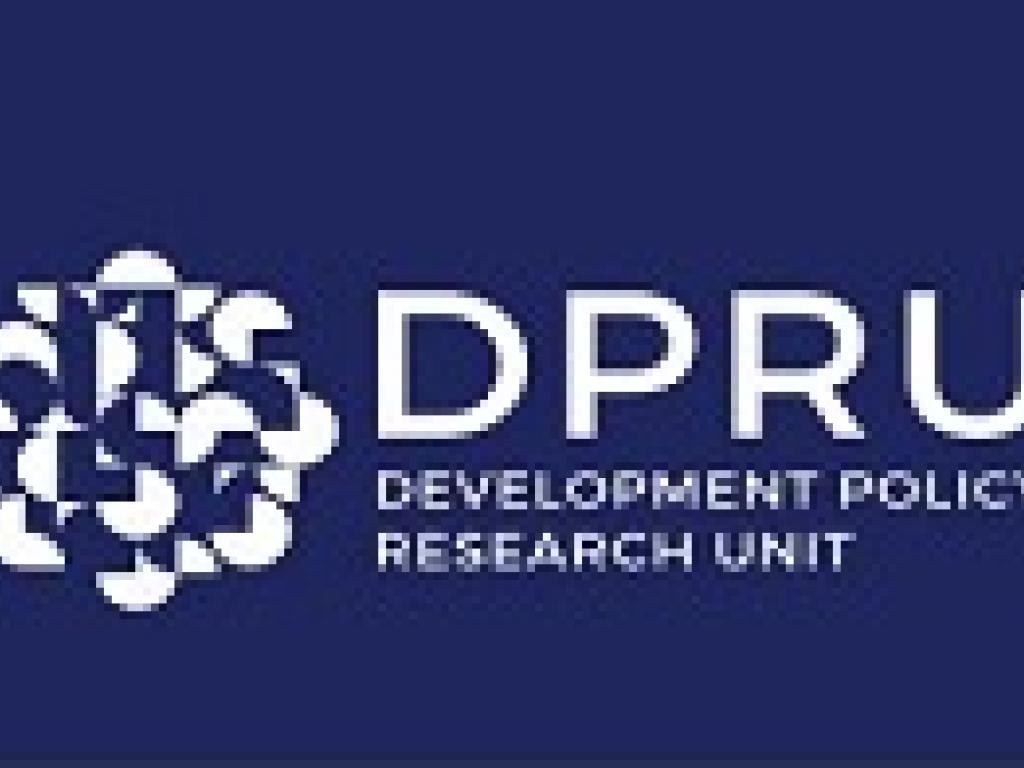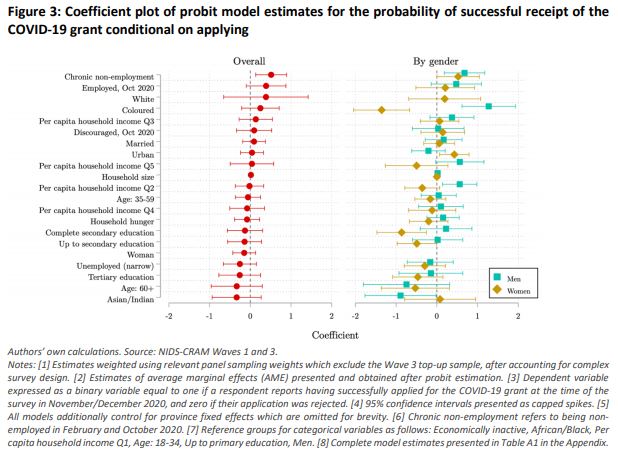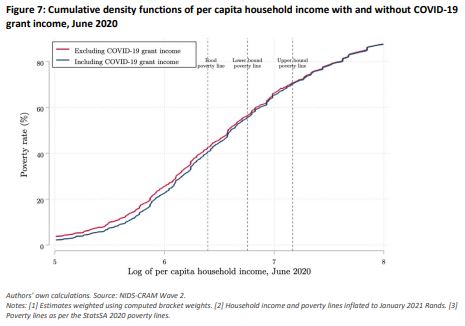Just Published: Can cash transfers aid labour market recovery? Evidence from South Africa’s special COVID-19 grant

The DPRU continues to participate in a variety of research projects aiming to provide empirical evidence on key socioeconomic outcomes during the COVID-19 pandemic and national lockdown in South Africa, specifically with respect to the labour market, workplace transmission risk, and social assistance.
Our latest working paper, "Can cash transfers aid labour market recovery? Evidence from South Africa’s special COVID-19 grant", authored by Prof. Haroon Bhorat (DPRU Director) and Tim Köhler (Junior Researcher and PhD candidate), provides a quantitative, descriptive analysis on COVID-19 grant receipt as well as causal estimates of the receipt of the grant on labour market participation by adopting a quasi-experimental econometric approach.

Also, application for and receipt of the COVID-19 grant has been relatively pro-poor. Conditional on applying, 23% of adults in the poorest 10% of households were successful, in contrast to 0.71% in the richest decile. Nearly all individuals in the richest decile (97%) never even applied, in contrast to 40% of those in the poorest decile.

The labour market effects of the COVID-19 grant may differ from existing grants because it is the first in SA to explicitly target the unemployed. However, our causal estimates suggest that the grant played a significant role in aiding labour market recovery by combatting inactivity and enabling participation. Specifically, we find that receipt of the grant increased the probability of job search by more than 25 percentage points. This is contrary to the common concern that grant programs may discourage work.
Read DPRU WP202108 in full here.
